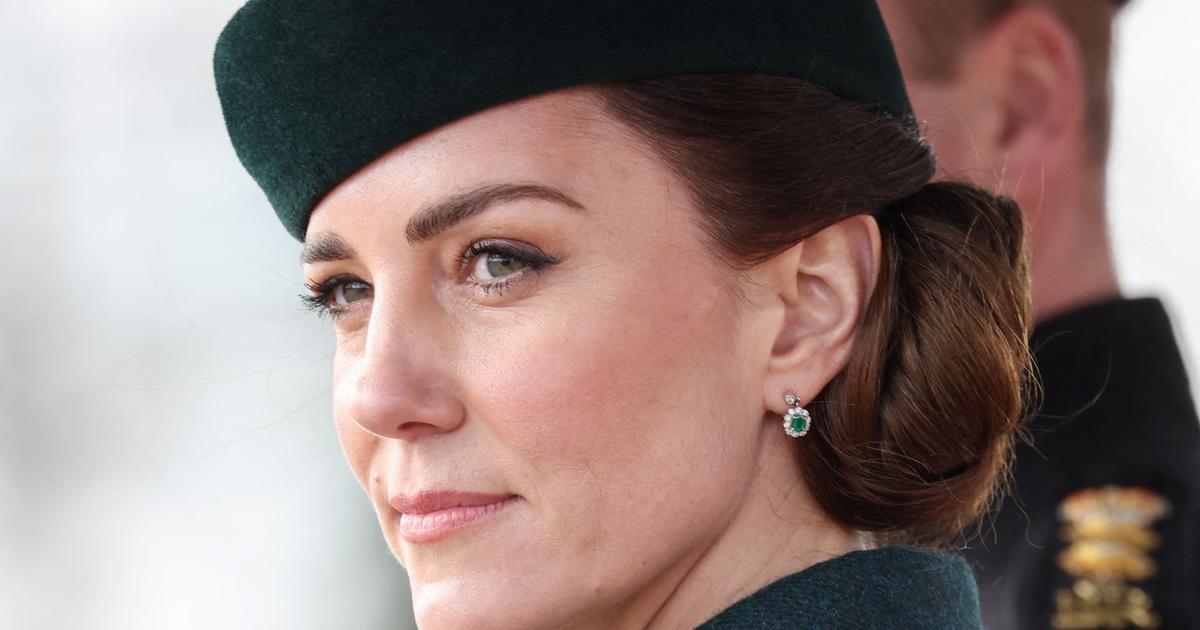AreaRead the video transcript expand here
There has never been anything like this in the history of the British National Health Service (NHS): hospital and rescue workers keep walking down their jobs.
According to the union, around 100,000 nurses responded to the call during the strikes in December alone.
And on January 23, 15,000 emergency doctors, ambulance drivers and employees of emergency call centers went on strike.
They all demand higher wages and better working conditions.
David Hendy, Nurse
»
Morale is at rock bottom.
Nurses are resigning, there is a wave of layoffs among senior nurses.
My personal experience after the corona pandemic, after being transferred to intensive care: I had more deaths in one year than in 14 years as a nurse.
I realized I'd had enough, so I quit.
I didn't have a job, had to pay off a mortgage.
I went to my family and friends.
I realized that I still have enough strength, energy and passion for nursing.
So I decided to return to the cancer chemotherapy department.
When I came back it was even worse than before.”
Nav Singh, Nurse
»It's a job I love, but I have to pay my bills.
And we have to keep people in this profession.«
The NHS was established in 1948 as a one-tier public health service to which everyone in Britain has access.
The system has long been the pride of the British - but now it is crumbling.
The NHS is struggling to find staff - no wonder with 12.5-hour shifts and too many patients per nurse.
In England alone there is a shortage of 133,000 employees.
Denis Campbell, Health Department, The Guardian
'Around 10 per cent of the NHS posts in England are vacant.
This includes 47,000 nurses and 9000 doctors.
This applies to the entire spectrum of healthcare professions.
If you don't have enough staff to run such an important public service properly, it doesn't work well either."
For patients, this means long waiting times.
Denis Campbell, has been writing about the NHS for 15 years.
"We are currently in a situation where more than nine million people out of the 66 million people in the UK are on waiting lists for hospital treatment, for example a new hip or a new knee."
Another problem is the overcrowded hospitals.
Many beds are occupied by people who should actually be transferred to a nursing home.
But there is a lack of places.
This has serious consequences.
When an emergency call is made, patients cannot currently rely on the ambulance arriving on time – and ambulance queues in front of the emergency room are not uncommon.
Denis Campbell, The Guardian '
People are starting to bypass NHS care and spend their own money on private health services, particularly non-urgent surgeries.
So people know the NHS is in an unprecedented crisis and that is causing enormous anxiety and concern.”
Is the demise of the NHS linked to Brexit?
A 2019 Leave campaign promotional video paints a bright future for Britain's hospitals.
These, it was promised, would receive the money that Britain paid to the EU.
It's been three years since Brexit - but the emergency rooms often still look like the picture on the right.
The promise was kept: more money actually flows into the NHS.
But obviously not enough.
Denis Campbell, The Guardian
'Even if the NHS is getting more money now - almost a 4% increase, it's not enough.
The money comes after a decade without the NHS getting anything of the sort.
During this time, staff wages were maintained and no new hospitals were built.
The hospitals have not been able to renew old equipment such as scanners for cancer and other equipment.
Now the NHS as a whole is in a much worse shape, especially considering the UK population is growing and aging and getting sicker in general.”
One cause of the crisis: more than ten years of tough austerity policies by the conservative British governments.
And even now, Campbell sees no fundamental change in policy: Negotiations between Prime Minister Rishi Sunak and the nurses' unions are deadlocked.
Denis Campbell, The Guardian
'The government needs to put a lot, a lot, a lot more money into care, like nursing homes, personal care, to keep people safe and well cared for at home.
These services have been cut by far more than the NHS budget.
As a result, more and more people, particularly the frail elderly, are falling ill and putting a strain on the NHS, for example because they fall or have breathing problems and need urgent emergency care.
In the longer term, more staff really needs to be trained as quickly as possible.
Doctors, nurses, midwives, paramedics, all throughout the territory.
But the government seems to have a mental block.«
The British government plans to free up 7,000 hospital beds for the NHS by March.
For many workers and patients, that will be too little, too late.
Denis Campbell, The Guardian
'Even if the Prime Minister flipped a switch today and said, 'We're really going to tackle the NHS by hiring as many new staff as we can afford', unfortunately it would be several years it would take a while for this to actually have an impact.







